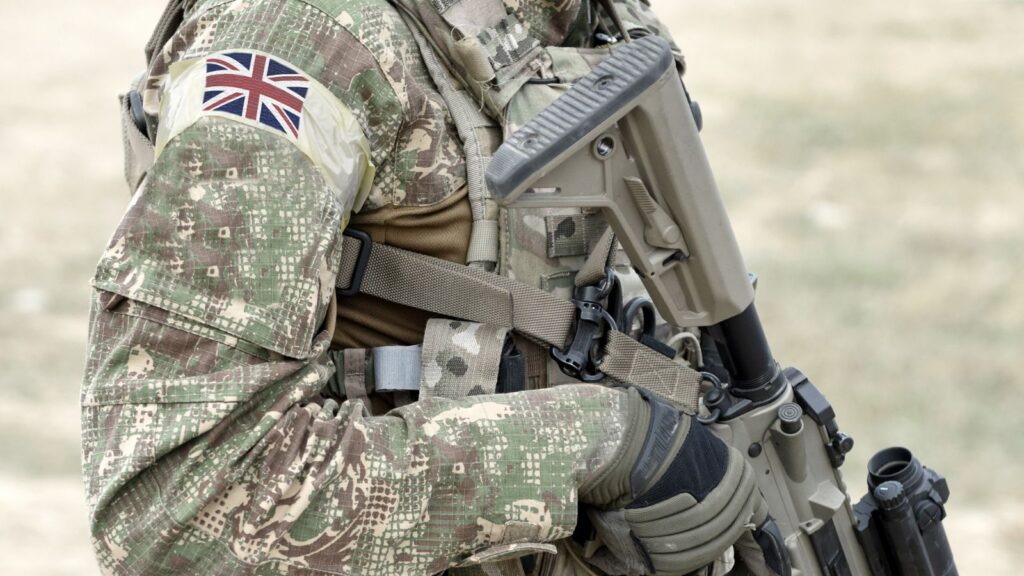When our servicemen and women return from the battlefield, they deserve nothing less than our utmost support and care. Yet, many veterans in the UK find themselves struggling to reintegrate into civilian life, often feeling overlooked. Let’s take a closer look at 20 ways the UK is letting down those who have served their country.
Lack of Mental Health Support

“Veterans are slightly more likely to have PTSD than civilians,” according to the National Center for PTSD. Many suffer from this and other mental health issues, but the support systems in place are often inadequate. Long waiting times for therapy and counselling, combined with a shortage of specialists who understand military experiences, leave veterans without the help they desperately need.
Inadequate Housing Assistance

Homelessness among veterans is a growing problem. Despite various initiatives, many ex-service members struggle to find stable housing due to a lack of affordable options and insufficient support. The transition from military accommodation to civilian housing is often mishandled, resulting in veterans ending up on the streets or in temporary shelters.
Employment Challenges

Finding a job after leaving the military is a significant hurdle for many retired soldiers. While their skills are valuable, they often struggle to translate military experience into civilian terms. Employers may, therefore, not understand or appreciate their qualifications.
Physical Health Neglect

Veterans often deal with long-term physical injuries sustained during service, but the healthcare system frequently fails to provide adequate care. Long waiting times for surgeries and specialist treatments, coupled with a lack of understanding of military-specific injuries, mean that many veterans suffer needlessly, impacting their quality of life.
Insufficient Financial Support

The financial assistance provided to these soldiers is often insufficient to meet their needs. Pensions and benefits can be complicated to access and may not adequately cover living costs, especially for those with disabilities. This financial instability can lead to debt, poverty, and an inability to support their families.
Poor Transition Programs

Transitioning from military to civilian life is a complex process that requires comprehensive support. However, many veterans find that the available programs lack depth and fail to address their unique needs. Without proper guidance and resources, veterans can struggle with identity loss, purpose, and direction.
Social Isolation

The camaraderie and strong bonds formed during military service are hard to replace in civilian life. Many ex-soldiers experience social isolation and loneliness—especially if they move to new areas where they lack a support network. This isolation can exacerbate mental health issues and make reintegration even more challenging.
Discrimination and Stigma

Despite their service, veterans often face discrimination and stigma in various aspects of civilian life. Misunderstandings about mental health issues, stereotypes about military behaviour, and a general lack of awareness can lead to unfair treatment in workplaces, communities, and even within the healthcare system.
Lack of Family Support Services

The families of retired soldiers also bear the burden of their loved one’s service. However, support services for families are often lacking, leaving them to cope with their challenges alone. Spouses and children may struggle with the veteran’s absence, mental health issues, or injuries without adequate resources to help them manage these difficulties.
Limited Access to Education and Training

Educational opportunities and vocational training are crucial for veterans when looking to build new careers. Unfortunately, many veterans find that access to these programs is limited, with inadequate funding and support. This barrier prevents them from gaining the qualifications and skills needed for successful civilian employment.
Bureaucratic Hurdles

Getting around the bureaucracy of veteran services can be daunting. Complex processes, endless paperwork, and unclear eligibility criteria make it difficult for retired soldiers to access the support they need. This red tape can deter veterans from seeking help, leaving them without essential services and benefits.
Legal Support Deficiencies

Veterans may also face unique legal challenges, including issues related to service-related injuries, benefits claims, or discrimination. But there is often a lack of specialised legal support to assist them, and without proper legal representation, they can struggle to resolve these issues.
Inconsistent Support Across Regions

Support for veterans can vary significantly depending on where they live in the UK. Some regions may have robust programs and services, while others are severely lacking. This inconsistency creates a postcode lottery, where the level of care a veteran receives depends largely on their geographical location.
Lack of Recognition and Honour

While there are occasional ceremonies and public acknowledgements, many veterans feel that their service is not adequately recognised or honoured by society. A lack of consistent, visible appreciation can lead to feelings of being undervalued and forgotten, impacting their mental and emotional well-being.
Underfunded Charities

Many veteran support services are provided by charities that rely on donations and government grants. However, these organisations are often underfunded and overstretched, struggling to meet the growing demand for their services. Without adequate funding, these charities cannot provide the comprehensive support that veterans need.
Gaps in Veteran Policy

There are significant gaps in national policies regarding veteran care. Despite numerous promises and initiatives, there is a lack of cohesive, long-term strategy to address veterans’ complex needs. This policy failure results in fragmented services and inconsistent support.
Insufficient Peer Support Networks

Peer support can be incredibly beneficial for ex-soldiers, offering camaraderie and understanding from those who have shared similar experiences. Sadly, there aren’t enough formalised peer support networks, leaving many veterans without this crucial form of support they might desperately need.
Overlooked Women Veterans

Female veterans often face unique challenges that are overlooked by traditional veteran services. Issues such as gender-specific health care, childcare support, and recognition of their service are frequently neglected, and such an oversight leaves women veterans feeling marginalised and unsupported.
Ageing Veteran Population

As ex-soldiers age, their needs change, requiring different types of support and care. However, there is often a lack of specialised services for elderly veterans, who may face health issues, mobility challenges, and isolation. This oversight can lead to a significant decline in their quality of life.
Insufficient Integration with Civilian Services

And finally, effective veteran care requires seamless integration with civilian services, including healthcare, housing, and employment support. Unfortunately, many veterans find that these services do not communicate effectively with each other, resulting in fragmented and inefficient care.







